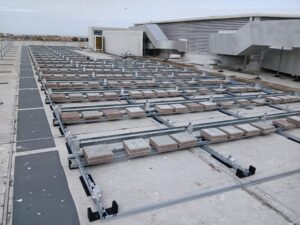Swansea-Based Telephony Specialist Urges Businesses Owners to Beef Up Their Security Measures Urgently Ahead of 5G Revolution
Everyone with an interest in technology will be keeping a close watch on the explosive story around 5G and airlines, and a leading UK communications specialists, Uplands Communications, which has its HQ in Swansea, is urging firms of all sizes to take note and to beef up their security measures now.
5G is already an integral part of the IT landscape and once it is fully implemented, it will take over the old generation of network connectivity by powering new technologies including cloud computing, AI, autonomous transport and more. But it brings a new set of challenges and risks and they should not be ignored, says Paul Hooper, Managing Director of Uplands Communications – which has a 40-year track-record in telephony.
“It is important that we don’t get swept away by hysteria on this – 5G is the most important advance in technology we have seen in this decade and it is already serving businesses and individuals well. Once it is fully embedded it will open up a vast number of possibilities for growth and efficiencies for savvy businesses. However, the scenario we are seeing unfold with airlines being very cautious about the potential for 5G to disrupt their instruments and operations should be taken very seriously by all businesses – not just by the big-hitters.
Paul adds: “5G implementation gives malicious actors new ways to infiltrate systems, networks and applications. A number of potential issues have been identified by security bodies. Things like legacy technologies – 5G wireless networks are built on a foundation of legacy hardware and software, and this exposes them to the same known vulnerabilities. Misconfiguration, and expanded attack surface are added risks – because 5G networks require more components, there are more network access points, increasing the potential attack surface. There are also potential issues with people trying to infiltrate 5G networks via the supply chain, and there are the built-in vulnerabilities that come from organisations having to add more Information and Communications Technology (ICT) components to their infrastructure, which may not have high enough security. And clearly, the more widespread the IoT ecosystem is the more harmful an attack on it would be – potentially disrupting critical systems.”
From a business point of view the fact that we are all curating more tech and generating more data means means 5G is a necessity in order to support this.
Paul continues: “There are solutions, and one of the most readily available for businesses is to establish partnerships with cloud vendors and specialists, since they have greater expertise and resources to boost private network security. Adopting Zero Trust for IoT and 5G networks is important, too. We also need a very robust national and Governmental focus upon 5G security. Let’s not be mistaken, just as 4G has delivered a boom in social media networks and mobile apps, 5G will support the future of connected tech like driverless cars and smart sensors – so it really is ushering in the next stage of our technological advancement, which will bring great leaps forward in competitiveness and efficiency. It is a huge opportunity, but let’s be smart in our preparation.”




